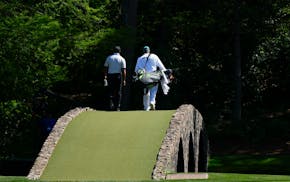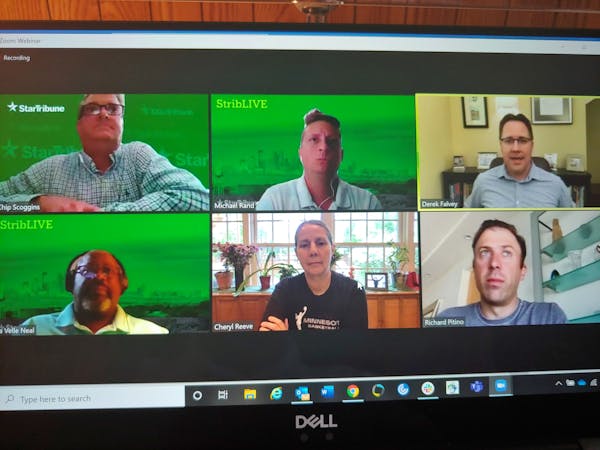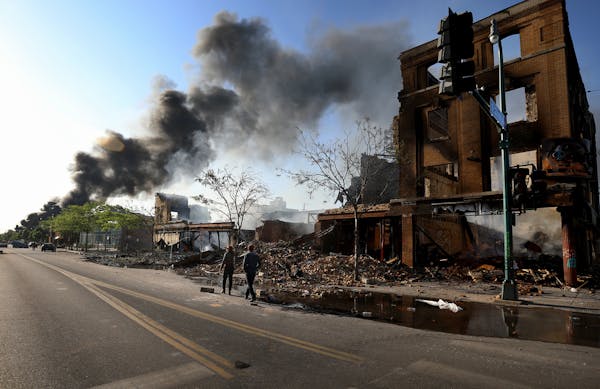After George Floyd died in police custody in Minneapolis, former Twins outfielder Torii Hunter found himself awake at 3 a.m. in his Dallas-area home.
He was crying. And remembering.
Hunter spent 19 years in the big leagues, establishing himself as a star player and one of the most ebullient personalities in the game. He could unite a clubhouse, then fill it with laughter.
When he heard about Floyd's death, he recalled the night he almost died because of the color of his skin.
“This hurts so much. We've been treated so badly for so long.Where is their humanity?”
"I keep asking why this is happening," Hunter said. "I'm thinking of my sons, my seven brothers, my dad, thinking of all of the black males who are treated like this. This made me cry. And I don't cry.
"A cop pulled a gun on me at my own house in California. Held the gun on me until I pulled my license and proved I lived there. I could have gotten shot. I could have been killed, for going home. That wouldn't have happened to anybody else who lived in that neighborhood."
On Monday night, a Minneapolis cop knelt on Floyd's neck as Floyd begged, "Please, I can't breathe."
"Who is going to uphold our rights if the government will not?" Hunter said. "He's pleading and they kill him. That's murder, man."
For many white Americans, exposure to what it is like to be black in the United States often comes through black athletes and entertainers.
We should listen to them.
Listen to Gophers receiver Rashod Bateman, who wrote this on his Twitter account:
"My name is Rashod Bateman. I'm an African Male from South Georgia. I never thought in a million years I would be scared to walk outside. I pray that we all wake up and start loving each other the correct way and stop taking each other's lives. No matter the color, we are all one."
Listen to actor Will Smith, who years ago said: "Racism isn't getting worse; it's getting filmed."
LeBron James posted a split-screen picture on Instagram this week. On the left is the cop casually kneeling on Floyd's neck. On the right is Colin Kaepernick kneeling before an NFL preseason game to protest police killing unarmed black men. A headline spanning the two photos reads: "This...Is Why."
James' caption: "Do you understand NOW!!??!!?? Or is it still blurred to you??"
Dallas Cowboys defensive end DeMarcus Lawrence posted on Twitter: "DONE BEING QUIET AND DONE BEING ANGRY. HOW CAN WE FEEL SAFE WHEN THOSE MEANT TO PROTECT US ARE KILLIN' US?!!!! WHEN WILL MINORITIES BE FREE TO BE AMERICANS IN AMERICA!?"
In 2016, after Philando Castile in Minnesota and Alton Sterling in Louisiana were shot and killed by police officers, Lynx stars wore T-shirts demanding justice. On Thursday, Lynx coach Cheryl Reeve held a virtual meeting with her team and promised to keep Floyd's story alive beyond the coming news cycles.
We're accustomed to celebrity endorsements, to the constant marketing of and by sports figures.
When black athletes and entertainers champion social justice, they aren't selling Nikes. They are choosing to anger a portion of their fan base while demanding decency.
When Kaepernick did that, the NFL blackballed him. Here's a reminder of his career-ending crime:
He became sickened by constant videos of police killing unarmed black men. He decided to protest, peacefully, by sitting during the national anthem. He consulted with former Green Beret Nate Boyer on the proper way to protest during the anthem. Boyer recommended taking a knee.
Kaepernick took a knee. He has been unemployed since the end of that 2016 season.
This month in America, white men carrying automatic weapons stormed government buildings and screamed in the faces of cops over coronavirus-related restrictions. They were not harmed.
Floyd, unarmed and begging for breath, died on Chicago Avenue.
"This hurts so much," Hunter said. "We've been treated so badly for so long.
"Where is their humanity?"

Souhan: Why Tiger Woods should keep swinging
Souhan: Scheffler wins Masters again, shows what makes him special
Morikawa falters in final round at Masters

Keeping up with the Joneses who helped design Augusta National's classic back nine



